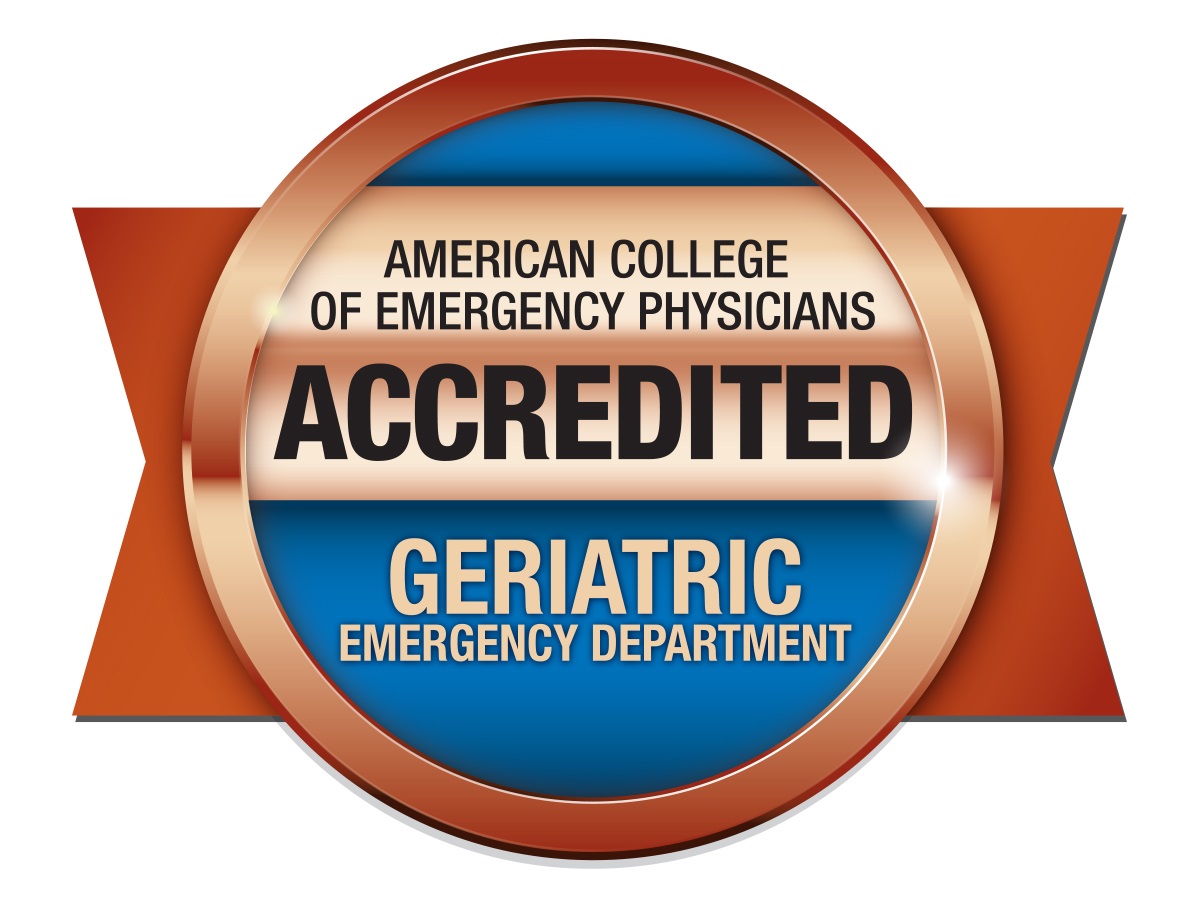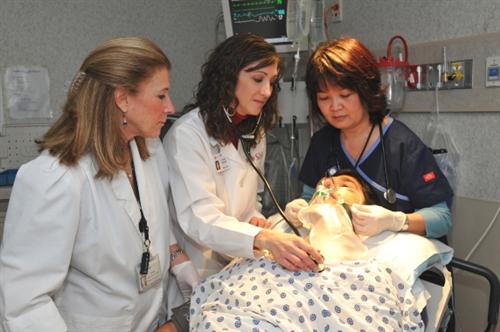Emergency Department at Sibley Memorial Hospital

Sibley’s Emergency Department is available 365 days a year, 24 hours a day. When you first come to the department with an emergency, you will be greeted at the reception desk by the nurse or EMT on duty. An admissions representative will enter your information into our computer system and begin the intake process.
Next, you will be evaluated for treatment, which involves gathering initial information to make a decision about where you will go in the department based on your level of need. This process can take place in the Quick Look bays, or your treatment room. A registered nurse will obtain your vital signs, gather more information about your symptoms and record your current medications and past medical history.
In the treatment room, a physician or a physician assistant (PA) will see you. To accurately diagnose your condition, the physician or PA may order lab tests, X-rays or CT scans. The length of your visit will depend on the tests ordered.
At the end of your evaluation, you will either be admitted or discharged. If discharged, you will receive any prescriptions needed, instructions on how to care for your condition at home and information on your follow-up care.
Throughout the process, friends and family may stay by your side in the treatment bays or wait in the reception area by the entrance. This waiting area contains a vending area and two plug-in counters for charging and using electronic devices, among other amenities that make the wait more pleasant. There is also a separate family room, with a television and phone, for families that need a change of scenery.
What is an Emergency?
The American College of Emergency Physicians (ACEP) recommends anyone with the following symptoms seek immediate medical attention:
- Difficulty breathing, shortness of breath
- Chest or upper abdominal pain or pressure
- Unusual abdominal pain
- Fainting, dizziness, weakness
- Changes in vision
- Confusion or changes in mental status
- Sudden or severe pain
- Uncontrolled bleeding
- Severe or persistent vomiting or diarrhea
- Coughing or vomiting blood
- Suicidal feelings
- Difficulty speaking
Anyone who thinks they may be having an emergency should get to a hospital emergency department as quickly as possible, either by their own means or by dialing 9-1-1 for an ambulance. With children, ACEP recommends erring on the side of caution. Symptoms that may not be serious in an adult may be very serious in a child. The rule of thumb is always to seek medical attention if you think your child is having a medical emergency.
Emergency Care Team

As a patient in the Emergency Department, you will be treated by a team of highly skilled individuals who work closely to deliver the highest level of care. These may include:
- A medical doctor (M.D. or D.O.) has overall responsibility for your care. All of our physicians are board certified (or eligible) in emergency medicine. Sometimes, a physicians assistant (PA) may assess your condition. PAs are certified health care professionals who work under the supervision of the physician.
- A registered nurse will be assigned to you during your visit. This person will assess and monitor your condition, give you any medication that is ordered, maintain your IV and assist you with any needs during your visit.
- A clinical associate (CA) may assist in your care. A CA may start your IV and collect lab specimens, transport you to tests and assist you as needed to make your stay as comfortable as possible.
- A radiology technician will perform any X-rays or other imaging studies that you need.
- A transporter may take you to and from an imaging study.
- An admissions representative will gather your information to set up your permanent medical record.
- A respiratory therapist will administer any special breathing treatments.
- A social worker may assist with any special needs for discharge.
Frequently Asked Questions about Emergency Care
-
Make sure you bring the following items with you to the Emergency Department:
- Photo ID
- List of medications with dosages and frequency (or the bottles)
- Social security number
- Insurance information*
- Name and address of emergency contact
- Name of your regular doctor (primary care physician)
-
Absolutely. You can have two visitors at a time, but they must stay at your bedside for the privacy of the other patients. There may be times when we may ask your visitors to remain in the waiting room or step out of the department. For their safety, we do not allow visitors under the age of 14.
-
There are a lot of people involved in your care in the Emergency Department. For your safety, we frequently ask you your name and any allergies that you have. This should be performed every time you receive any medication and before every test. Other questions may also be repeated either to verify information or make sure we have the information correct. This will help us care for you in the best way possible.
-
That will depend on how many patients are in the department when you arrive. Also, if someone arrives after you with a serious condition they may need to be evaluated before you. We have a lot of processes in place to get you evaluated as soon as possible.
-
That will depend on how sick you are and how many tests are ordered. Patients with minor complaints can be seen and discharged quickly, whereas someone with a more complicated illness will take longer.
-
Yes. There is a phone in every treatment room.
-
We like to involve your regular physician for any condition that is not minor. You may also request that we call your physician during your stay.
-
There is controlled access into the Emergency Department for the safety and privacy of our patients and staff.
-
Medical records are maintained by the Health Information Management department (HIM). Instructions on how to obtain a copy of your records are available here.
